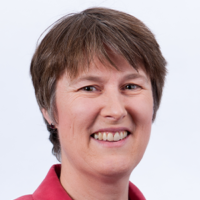Scientists have been justifiably alarmed since the early days of the Trump administration. Many have voiced concerns on the removal of climate change information from websites, disregard of science on pesticides and air quality and more. Enter the latest salvo: Yesterday, hundreds of members of the National Academy of Sciences (NAS) signed a letter calling for the administration to reverse its decision to withdraw the United States from the Paris Climate Agreement and to restore scientific integrity to decision making.
Here are three reasons why we should pay attention:
- The NAS scientists signers are the top minds in their fields. Elected by their peers as leaders in their respective field of science, all signers are members of the National Academies of Sciences (NAS). President Lincoln signed the Act of Incorporation for the NAS in 1863 to provide a service to the nation. These scientists provide voluntary service–usually at the request of Congress or agencies in the Executive Branch. These members are used to thinking about the implications of their science and providing advice to the U.S. government. In this case, they got together to provide independent advice on matters of grave concern to the fate of our nation and its people.
- These leading scientists understand that addressing climate change is urgent. They call on the administration to reverse the decision to withdraw the U.S. from the Paris Climate Agreement. Our intent to withdraw matters since the U.S. is the second largest country emitting carbon dioxide from fuel combustion. The United States originally supported the Paris Agreement and committed to “achieve an economy-wide target of reducing its greenhouse gas emissions by 26-28 per cent below its 2005 level in 2025.” The Trump Administration has reneged on that promise. As a result, the forecasts for emissions trajectories went up placing in jeopardy the Paris Agreement goal to keep the global average temperature rise this century well below 2 degrees Celsius above pre-industrial level. This is a threshold that scientists agree we don’t want to cross if we hope to avoid some of the worst consequence for people and other life on this planet.
- Considering scientific and technical input is essential for a safe and prosperous nation. In addition to noting that the U.S. is the only nation to have initiated withdrawal from the Paris Agreement, the central core of the statement is a call to restore science-based policy in government. The statement outlines the problem, “The dismissal of scientific evidence in policy formulation has affected wide areas of the social, biological, environmental and physical sciences.” Evidence abounds. Clean air protections have been weakened. There likely would be an unequal burden of injustice for those who live closest to sources of hazardous pollutants. The Centers for Disease Control staff should not have to restrict the words they use to describe important public health matters and should feel free to respond to reasonable public requests for information. Reassignments of experts to positions outside their area of expertise have occurred. The statement also calls “to appoint qualified personnel to positions requiring scientific expertise.” There is an erosion of confidence in leadership at the highest levels of several agencies. This list is long…
It takes guts to step out and speak up when you see a wrong. Take note nation, our top scientists are loudly ringing the alarm bells.

